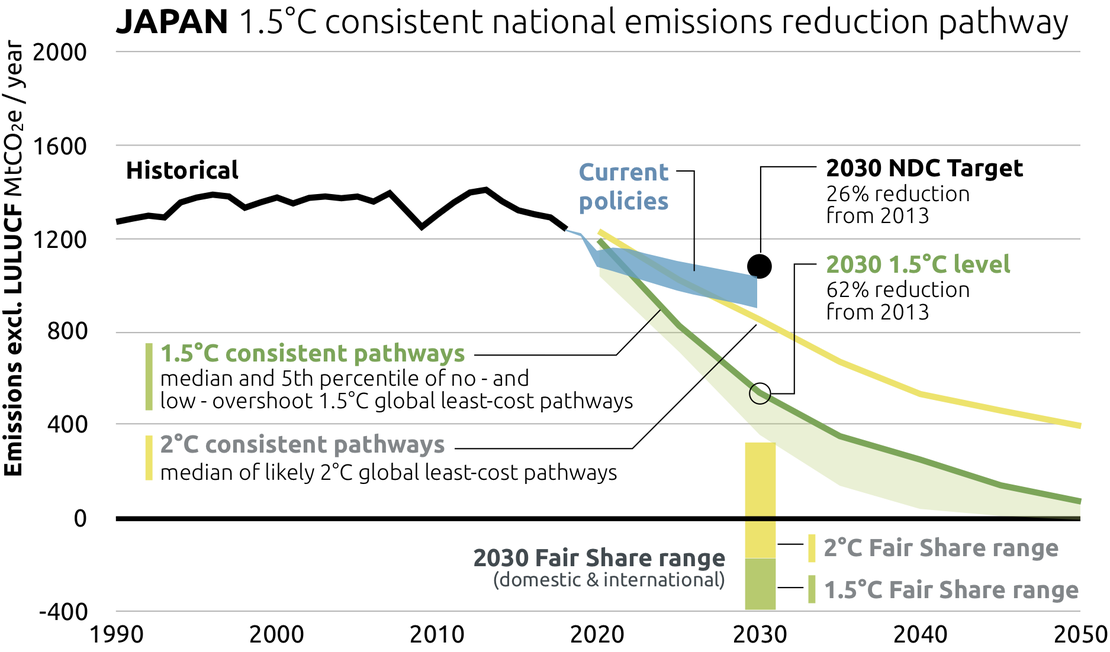Japan’s Paris Agreement target should be more than 60% by 2030 - analysis
Attachments
Press release
日本語訳はこちら:2021_03_CAT_1.5C-consistent_benchmarks_Japan_NDC-Translation.pdf
Japan needs to increase its Paris Agreement 2030 climate target to more than 60% below 2013 levels, a target that would be 1.5˚C compatible and set it on a domestic emission pathway to reach its 2050 net zero target, according to new Climate Action Tracker analysis released today.
The Japanese government is currently in the process of re-drafting its Paris Agreement Nationally Determined Contribution (NDC) under the Paris Agreement. Its current NDC, resubmitted to the UNFCCC in March 2020, did not increase the 2030 target.
“When Japan announced its net zero by 2050 target, it was abundantly clear that its 2030 target would not get its emissions onto anything like a pathway to achieve it. Our analysis shows how this could be achieved, and beneficial, with transformational policies,” said Dr. Takeshi Kuramochi, the Climate Action Tracker’s Japan expert (from NewClimate Institute).
“Last week, the UN Secretary General urged major emitters to ‘step up with much more ambitious emissions reductions targets for 2030’. Japan is one such major emitter, and we need to see a much greater effort in a resubmitted NDC,” said Bill Hare, CEO of the other CAT partner organisation, Climate Analytics.
As part of its analysis, the CAT developed 1.5˚C-consistent benchmarks for all sectors in Japan. To get onto a pathway that would see Japan reaching its net zero 2050 target would an overall domestic target (excluding land use, land-use change and forestry) of at least a 62% GHG reduction below 2013 levels by 2030 and at least 82% by 2040.
It would require transformational changes in all sectors, including:
- a phase-out of coal-fired power generation by 2030.
- Renewable energy would need to increase its share of power generation to 60% or more - to avoid reliance on nuclear or fossil fuels with unproven negative emission technologies - and to increase the country’s chance of reaching 100% renewables by 2050.
- Minimise the introduction of new gas-fired generation, and reduce electricity use overall.
- Power sector decarbonisation would also lead to a net increase in domestic employment.
- A commitment to a clear timeline for 100% zero-emission vehicles in new sales, which could be a game changer in the global car market. In Japan, this would need to be accompanied by policies to promote a modal shift and an overall decrease of transport demand

Stay informed
Subscribe to our newsletter